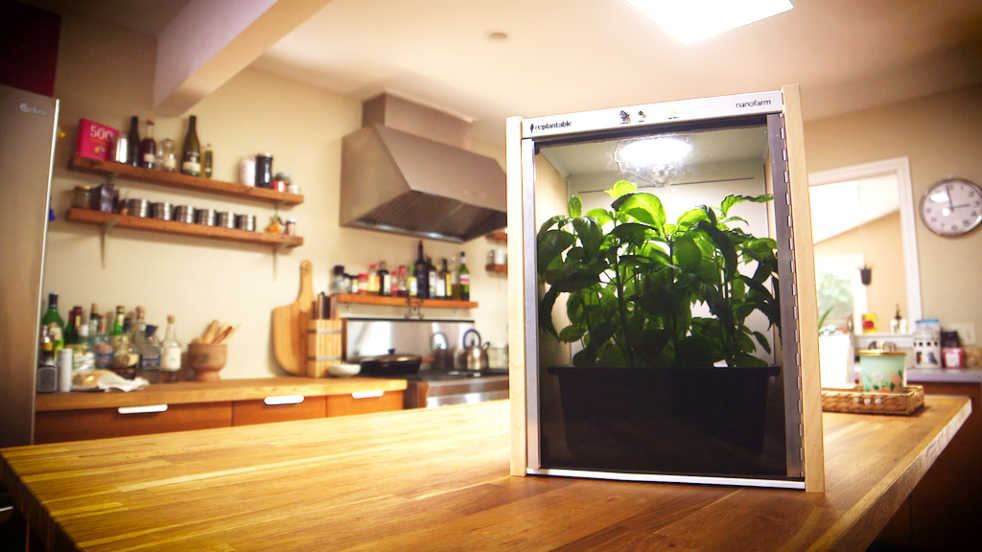Shortly before graduation, Alex Weiss, BME ‘15, and Ruwan Subasinghe, ME ‘15, began to contemplate an omnipresent problem in America often overlooked — food waste. By some estimates, up to 50 percent of all food grown for consumers is never eaten and ends up in the trash.
Eager to act on entrepreneurial aspirations, the pair used these statistics as a call to action.
While enrolled in Tech’s Startup Lab course, Weiss and Subasinghe scrutinized the current system of transporting harvested crops over long distances. Because produce typically travels hundreds or even thousands of miles before arriving at a grocery store, farmers rely on harvesting crops before they are fully ripe to account for the shipping time. Their first idea came in the form of “living packaging” — allowing plants to continue to grow during transit thereby ameliorating the effects of an early harvest.
Over the next 10 months, Weiss and Subasinghe used the multifaceted issue of food waste as an anchor that would keep them secured through the turbulent process of launching a startup. Utilizing perseverance, creativity, ample research and the resources of Create-X, a Tech initiative
fostering student entrepreneurs, they have created a better way for consumers to eat fresh produce.
The nascent company born from their efforts is called “Replantable,” and their first product is called the “nanofarm.” This is not an ordinary farm but a hydroponic smart-garden that one would be more likely to stumble upon while wandering through the Starship Enterprise. The nanofarm is a cube-like enclosure that utilizes LEDs and a novel hydroponic system to take virtually all of the work out of gardening the “old-fashioned” way.
Users begin by purchasing a biodegradable “plant pad” that contains the plant seeds. Currently, there are roughly 20 varieties of plants to choose from, predominantly leafy greens and herbs, although Replantable aims to continuously add on. Next, users place the plant pad on top of a basin of water and into the nanofarm. A digital timer is adjusted depending on the plant variety, and all that is left to do is wait for fresh produce to grow — typically over the course of a few weeks.
Hydroponic growing methods do not use soil; rather, they dissolve the required plant nutrients into water and circulate it directly over the roots. In the nanofarm, the pad soaks up enough water to keep the seeds moist, and because nutrients are impregnated into the pad material, the seeds have everything they need.
Weiss is an affable and enthusiastic character, with a hint of an accent from his home town Philadelphia. Although his prime motivation lies in helping to reduce food waste, what really gets him excited is tasty, fresh food. He explained his delight in experimenting with new varieties of plants. While basil and lettuces were consistently the most popular requests, his technology allows for the production of new forms of produce that are not readily available in grocery stores.
Micro greens and vegetables can be harvested after a only few days of growth. They are very
tender and pack a punch of flavor, allowing them to be used as garnishes or in a mix with other greens. The micro-root vegetables that the nanofarm can grow includes radishes and beets. Similarly to the micro greens, the tiny roots taste like their larger counterparts with an added flair and tenderness.
Last month Replantable completed a successful Kickstarter campaign raising over $61,000. Although prototype units have been in service for some time, these funds will be used to fabricate the first production run of the nanofarm. The new nanofarms are expected to be shipping out to customers sometime next year for a pre-order price of $350.
The auspicious pair look forward to a future where consumers can pluck vegetables not from grocery shelves but from their very own pantries.
For other students interested in launching a startup, Weiss earnestly recommends getting involved with Tech-affiliated entrepreneurial organizations that can provide resources and mentorship, particularly Create-X and the student run organization, Startup Exchange.
